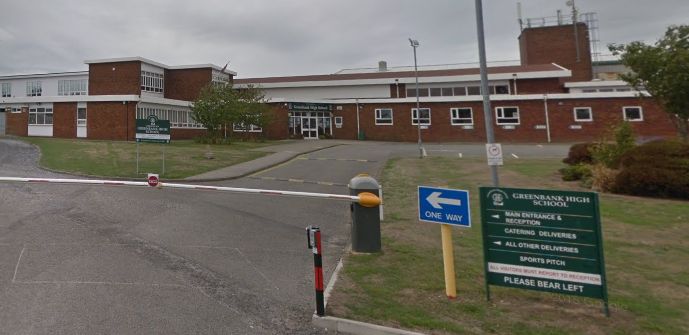An innovative way to make six Sefton schools ‘poverty proof’ is now under way.
The schools involved in the first phase of the initiative are: Deyes, Greenbank and Holy Family Catholic high schools, St Elizabeths and Redgate primary schools and Rowan Park SEND School.
Sefton Council’s Public Health team is working in partnership with Children North East and six of the Borough’s schools on the project. It is part of the Authority’s work to tackle child poverty.
Developed by Children North East, the Poverty Proofing the School Day programme aims to highlight to teachers and school staff, the challenges faced by students living in poverty.
Challenges faced by pupils and their families can include the costs of uniforms and some classroom activities such as bringing food ingredients for cookery and food technology lessons.
Fees for activities such as music lessons and school trips and ‘official’ photos can also place families under financial pressures and may result in some pupils missing out.
And the costs of special events that involve dressing up or dressing down and bringing in items such as birthday goodies to share can also be difficult for parents and guardians to find.
As well as missing out on opportunities, those children and young people affected can face stigma.
Adopting the Poverty Proofing© approach to the school day helps pupils take part in all parts of school life by providing a structured way to minimise these and other school costs for families.
After some initial training on the process, the first stage of the process involves headteachers, school staff and others carrying out audits to look at these, sometimes hidden, costs and barriers to participation. Other areas covered by the audits include access to breakfast clubs, snacks and the identification of pupils entitled to free school meals. Audits also look at the support available, including mental health support as well as support to parents and families.
The schools in the scheme will audit each other and then work together to develop plans for each school to tackle the issues identified.
Like most areas in the North West, Sefton has seen annual increases from 2020/21 in the proportion of under 16s who live in relative low-income households. In 2023/24, the figure for Sefton was 22.1%. That’s over 10,500 young people – more than one in five – and higher than the national average of 21.8%.
Cllr Diane Roscoe, Sefton Council’s Cabinet Member for Children Schools and Families, said:
“Our Child Poverty Strategy focuses on the themes of ‘pockets, prospects and places’ has been recognised as an example of good practice and is now included on University College London’s Institute of Health Equity website.
“It has successfully galvanised support and momentum from a wide variety of partners and stakeholders across all sectors to change the way we do things that children and families, and their communities across Sefton.
“Child poverty has a negative effect on children and young people’ educational and that effect can stay with them throughout their lives, limiting prospects and opportunities. By adopting the Poverty Proofing© approach to the school day, we can identify ways to turn that around and maximise opportunities for every pupil.”
Feedback from the initial training session included
“Really informative – helpful to have statistics and engaging activities to learn about different elements.”
“I’ve developed a much better understanding of some of the challenges our pupils face. It’s given me the opportunity to be reflective and this will come out further during the audit process.”
Very informative, delivered in a very non-judgmental, friendly manner. Some really thought-provoking videos/slides and delivery”
“Really enjoyed the training session – super balance and presentation, discussion and activity. Thank you!”
Children North East has been working to transform the lives of babies, children, young people and families since 1891. Centred on the voices and lived experiences of children and young people, its Poverty Proofing the School Day programme aims to improve academic performance and engagement among children and young people.
Other elements of the programme include increased teacher and staff awareness of the challenges those pupils face as well as strengthening relationships between home and school.
After this initial phase, Sefton Council plans to scale up the programme to cover 25 of the Borough’s schools by 2026. Plus, awareness training sessions are being offered to wider educational staff and other partners to increase awareness of the causes, and consequences of poverty. These sessions will include an introduction to Poverty Proofing©.
Cllr Roscoe continued:
“The ‘prospects’ element of our Child Poverty Strategy is about tackling the causes of education and income gaps and providing better routes out of poverty for parents and children.
“Taking the Poverty Proofing© approach will give us a hands-on way to achieving this and making a positive change to the lives and futures of disadvantaged children and their families.”
People can find out more about Sefton Council’s work to combat Child Poverty in Sefton at www.sefton.gov.uk/child-poverty.
Do you have a story for Stand Up For Southport? Do you need advertising, PR or media support? Please message Andrew Brown via Facebook here or email me at: mediaandrewbrownn@gmail.com






